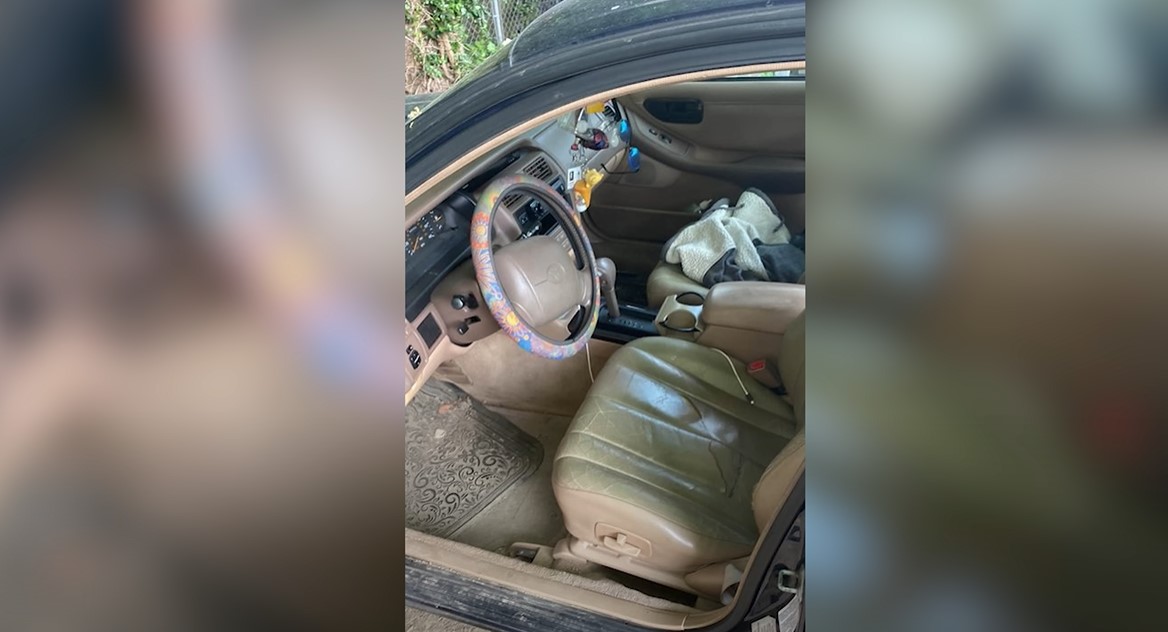Selling a car in Connecticut can seem like a daunting task, but with the right information and preparation, you can navigate the process smoothly and efficiently. Whether you’re looking to sell a car privately in CT or through a dealership, understanding the necessary steps and required documents will help you avoid potential pitfalls and ensure a successful transaction. In this comprehensive guide, we will walk you through each step of the process, from preparing your vehicle for sale to completing the final paperwork.
Preparing Your Car for Sale
Before listing your car for sale, it’s important to ensure it is in the best possible condition. A clean and well-maintained car is more attractive to potential buyers and can help you secure a better price.
- Clean and Detail the Car: Thoroughly wash and wax the exterior, clean the rims and tires, and detail the interior by vacuuming, cleaning the seats and carpets, and wiping down all surfaces.
- Conduct Necessary Repairs: Fix any minor issues such as replacing worn-out wiper blades, checking the tire pressure, and ensuring all lights and signals are working.
- Gather Maintenance Records: Compile all maintenance and repair records to show prospective buyers that the car has been well cared for.

Setting a Price
Research the market value of your car using tools like Kelley Blue Book or Edmunds. Consider the car’s age, mileage, condition, and any additional features. Setting a realistic price is crucial to attracting serious buyers.
Advertising Your Car
To reach potential buyers, you need to advertise your car effectively. Here are some tips:
- Take Quality Photos: Capture multiple angles of the exterior, interior, and engine. Clear and well-lit photos can make a significant difference.
- Create a Detailed Listing: Write a comprehensive description of the car, including the make, model, year, mileage, condition, and any unique features. Be honest about any flaws.
- Choose the Right Platforms: List your car on popular online marketplaces such as Craigslist, Facebook Marketplace, and Autotrader.
Required Documentation
When selling a car in Connecticut, several documents are required to complete the sale legally:
- Bill of Sale: This document records the details of the sale, including the buyer and seller’s information, the vehicle’s vehicle identification number (VIN), make, model, year, and the sale price.
- Title Transfer: The title transfer is crucial for legally transferring ownership. Both the seller and the buyer must sign the title, and the seller should fill out the odometer disclosure section.
- Vehicle History Report: Providing a vehicle history report can build trust with potential buyers by showing the car’s history, including any accidents or major repairs.
- Emissions Test: If the car is more than four years old, it must pass an emissions test before the sale can be completed.
- Registration and License Plates: Remove your license plates and return them to the Connecticut DMV. The buyer will need to register the car in their name.
- Proof of Insurance: Ensure the buyer has valid car insurance before completing the sale.
- Duplicate Title: If you’ve lost the title, you need to apply for a duplicate title through the Connecticut DMV before proceeding with the sale.
Read also: How to Sell a Car at Auction
Finalizing the Sale
Once you have found a buyer and agreed on a price, it’s time to finalize the sale:
- Sign the Bill of Sale: Both parties should sign the bill of sale, and the seller should provide a copy to the buyer.
- Transfer the Title: Complete the title transfer and make sure all sections, including the odometer disclosure, are properly filled out.
- Provide a Lien Release: If there was a lien on the car, ensure you provide a lien release document to the buyer.
- Handle Sales Tax: The buyer is responsible for paying the sales tax when registering the vehicle.
- Remove the License Plates: Take off your license plates and return them to the DMV. This can be done in person or by mail.
Post-Sale Considerations
After the sale, there are a few additional steps to complete:
- Cancel Your Insurance: Contact your insurance company to cancel the policy on the sold vehicle.
- Notify the DMV: Inform the Connecticut DMV of the sale to ensure you are no longer liable for the vehicle.
- Provide Proof of Purchase: Ensure the buyer receives all necessary documents, including the proof of purchase.
Frequently Asked Questions
How do I sell a car privately in Connecticut?
To sell a car privately in Connecticut, start by preparing your vehicle for sale by cleaning and detailing it. Set a competitive price based on market research. Advertise the car effectively through online marketplaces and local ads. You will need a bill of sale, the car title, an odometer disclosure statement, and possibly a vehicle history report. Complete a title transfer with the buyer and remove your license plates before the buyer registers the vehicle.
What documents are required to sell a car in CT?
The essential documents needed to sell a car in Connecticut include the car’s title, a bill of sale, an odometer disclosure statement, and a lien release if applicable. Additionally, providing a vehicle history report can be beneficial. If the car is older, an emissions test report may also be required.
How do I handle a lien on my car when selling it in CT?
If there is a lien on your car, you must obtain a lien release from the lender before selling the vehicle. This document proves that the lender no longer has an interest in the car. Ensure the lien release is on the lender’s letterhead and provide it to the buyer during the sale. Without a lien release, the title transfer cannot be completed.
Do I need to get an emissions test before selling my car in Connecticut?
Yes, if your car is more than four years old, it must pass an emissions test before it can be sold in Connecticut. Ensure you have a valid emissions test report ready as it will be required by the buyer to register the vehicle. You can get the test done at authorized testing centers in the state.
How do I transfer the title of my car to the buyer in Connecticut?
To transfer the title of your car to the buyer in Connecticut, both parties must sign the back of the title. The seller should complete the odometer disclosure section and provide a bill of sale. The buyer will then take the signed title, bill of sale, and proof of insurance to the Connecticut DMV to register the vehicle in their name and pay any applicable fees and taxes.
Visitor Reviews
- John Doe: “Selling my car in Connecticut was surprisingly straightforward. I made sure to gather all the necessary documents like the bill of sale and title transfer paperwork. The most challenging part was setting a fair price, but once I did my research using Kelley Blue Book, everything else fell into place. The buyer appreciated the detailed vehicle history report I provided, which helped build trust. The Connecticut DMV’s website was a great resource for ensuring I didn’t miss any steps.”
- Jane Smith: “I recently sold my car privately in CT, and it was a smooth experience. Cleaning and detailing my car beforehand made a huge difference in attracting buyers. I used several online platforms to advertise my car and received multiple offers. One tip I have is to always meet in a safe, public place and bring someone with you if possible. Completing the title transfer and odometer disclosure at the Connecticut DMV was straightforward, and the staff were very helpful.”
- Michael Johnson: “When I sold my car in Connecticut, I was initially overwhelmed by the paperwork, but it turned out to be manageable. I ensured that my car passed the emissions test and had all my maintenance records ready. The buyer was pleased to see a thorough vehicle history report. The most time-consuming part was the title transfer process, but having all the documents prepared made it easier. Removing my license plates and canceling my insurance were the final steps, and it all went smoothly.”
- Emily Davis: “Selling a car privately in CT was a new experience for me. I followed all the steps, from cleaning my car to setting a fair price. Advertising on platforms like Craigslist and Facebook Marketplace brought in several potential buyers. One key aspect was having a detailed bill of sale ready, which included all the necessary information. The Connecticut DMV provided clear instructions for the title transfer, and everything was processed without any issues. Overall, it was a positive experience.”
- Robert Wilson: “My experience with selling a car in Connecticut was very positive. I made sure to gather all the required documents, including the bill of sale, title, and emissions test report. Pricing the car appropriately was crucial, and I used online resources to help with that. Meeting with potential buyers and showing them the vehicle history report helped build credibility. The title transfer process at the Connecticut DMV was straightforward, and I appreciated their efficiency in handling the paperwork.”
- Jessica Brown: “Selling my car privately in Connecticut went better than expected. I started by giving my car a thorough cleaning and addressing any minor repairs. Listing my car with detailed photos and a comprehensive description attracted serious buyers. I found the Connecticut DMV’s guidelines very helpful in understanding the title transfer process. Having a bill of sale ready and completing the odometer disclosure were essential steps. The entire process was smooth, and I was able to sell my car quickly and efficiently.”
About Connecticut DMV
The Connecticut DMV plays a crucial role in the car selling process. They handle the registration, title transfer, and license plate management, ensuring that all transactions are legally compliant. The DMV provides various forms and resources on their website to assist sellers and buyers through the process. From issuing duplicate titles to processing emissions tests and handling lien releases, the DMV ensures that vehicle sales in Connecticut are conducted smoothly and legally.

Leave a Reply